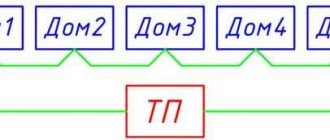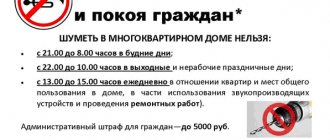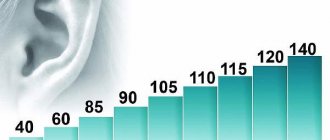Today in Russia there is a concept of “night time”, which regulates the presence of minors during the prohibited period. According to this law, teenagers cannot be in public areas at night without their elders. If this rule is violated, parents will be fined. Therefore, many are interested: at what age can you walk at night? During this period, only people over 18 years of age are allowed to stay.
Many countries have similar laws where children are prohibited from being outside at night without adults. This rule is necessary to ensure the normal development of adolescents and reduce crime. It is important to comply with the rules, otherwise a fine will be imposed.
Temporary restrictions
The period from 22:00 to 06:00 is considered night. Minors should not be in public places at night without adults. This rule was adopted to ensure the safety of children, since many illegal acts are committed at night. These rights are regulated by the Constitution of the Russian Federation. It also indicates at what age you can walk at night.
The adopted law helps reduce crime throughout the country. But even taking this into account, regions may change time restrictions depending on the situation. The following rules often apply:
- up to 16 years of age, teenagers are allowed to be outside without adults until 21:00;
- and for children under 18 – until 11:00 pm.
At what age can you legally walk at night? This right comes at age 18. Local authorities may officially increase fines and also lower age limits. When the corresponding document is issued, the norms become binding for everyone.
Note: When does the morning end and the day begin?
09:59, 17 August 2018
19574

“We’ll see you tomorrow morning”, “we’ll call you in the morning”... We use such phrases quite often, only then it often turns out that everyone’s morning begins and ends at different times. How much time can really be considered morning?
In fact, it’s hard to say for sure when the morning begins. There are a lot of definitions - folk, astronomical, official - and each of them in its own way defines the boundaries between times of day. Some people generally use the simple principle “ When you wake up, then it’s morning ,” so it turns out that for some, morning is five o’clock in the evening.
Until people began to use artificial lighting, morning began with sunrise, and evening began with sunset . The length of daylight hours determined the length of the “working” day. Some people still use this distinction, but the times of dawn and sunset shift depending on the time of year - the division of the time of day is too unclear. In addition, it is not clear how to draw the line between evening and night, morning and day. That is, it is clear when the morning begins, but it is impossible to objectively determine when it ends and the day begins.
In addition, each language has its own set expressions associated with the time of day . For example, in Russian they say “two o’clock in the morning,” but in most cases they say “four o’clock in the morning,” that is, four o’clock is already morning, although in winter it may still be dark outside the window at this time. But, unfortunately, such descriptive constructions do not help to clearly distinguish between morning and day, evening and night: it happens that someone is used to saying “three o’clock in the morning,” and someone is used to saying “three o’clock in the morning.”

And in many English-speaking (and not only) countries, it is generally customary to use a 12-hour time format, and divide the day into only two periods - before noon (am, ante meridiem) and after noon (pm, post meridiem). It is not customary for them to use descriptive constructions (although this does not mean that they do not use them at all), so the problem of dividing the time of day remains.
So it turns out that each country, and even each person, has his own subjective perception of the time of day , associated with the customs of the country and his own daily routine. For example, most office workers associate morning with the beginning of the working day, afternoon with the lunch break, and evening with the end of the working day.
But still, is it possible to somehow bring this into a unified system, and distinguish between the times of day in order to clearly understand when the morning begins and ends? This way a lot of misunderstandings could be avoided!
Most European countries have adopted a single division of the day. According to this division, the day is divided into four equal intervals of six hours each .
It turns out that the times of day are distributed as follows:
- from 0 to 6 o'clock - night
- from 6 to 12 o'clock - morning
- from 12 to 18 o'clock - day
- from 18 to 24 hours - evening
It is reasonable to use such a system, for example, in business communication, when you need to be 100% sure that the morning of the customer and the contractor coincides: it happens that the contractor is sure that he sent the work to the customer in the morning, as agreed, and the customer It's already day. And how will you understand who is right and who is wrong if everyone judges by their own criteria? This is why we need a pan-European system - so as not to ask the question “ When does the morning end and the day begin?” »
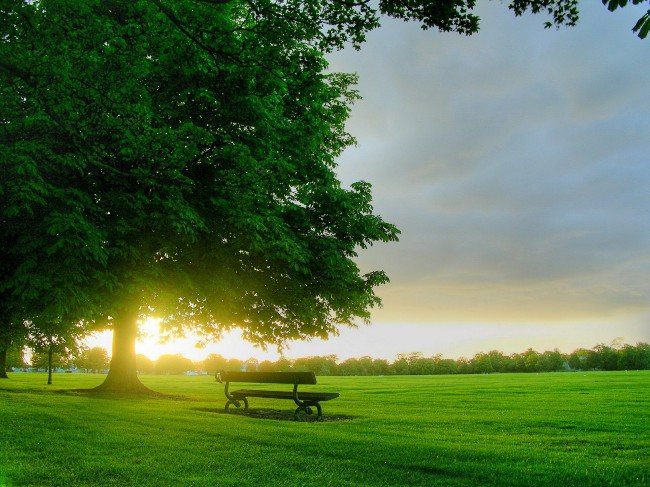
Subscribe to our Telegram channel. Stay on top of all the action! We work for you!
Psychological effects of curfew
Now in each region the authorities monitor compliance with this law. To do this, the police conduct inspections of yards and streets to identify minors after 11 pm. Many parents have not previously thought about the age at which children can walk at night. But with the adoption of the law, the situation began to improve. After all, such walks are associated with danger, as well as with the likelihood of paying a fine.
But nevertheless, the adoption of the law caused a wide resonance in society, since many citizens considered it a restriction of human rights and freedoms. But not everyone tries to follow these rules. So, at what age can you walk at night in Russia? This can only be done by persons who have reached the age of majority. For others, this right is retained only with their parents. But under 18 years of age there are still restrictions.
From what time and until what time does the day, night, morning or evening last?
A very interesting question. Every day has such a time of day as - night, morning, day, evening. I think that each person has a slightly different concept and perception of time, especially owls and larks, for whom the morning begins at different times, as well as the night. But, I think that there are still general concepts of when, how much, what time they begin and end - night, morning, day, evening. Based on my life experience, I would say this:
- the night begins at 00 o'clock or 12 as we all usually say, and the night lasts until 6 am,
- and at 6 o'clock the morning begins, and the morning ends at 12 noon,
- the day starts at 12 o'clock and ends at 6 pm,
- the evening begins at 18 o'clock and lasts until 24 o'clock - 12 am.
We recommend reading: Power of attorney for the right to pay from a legal entity
Responsibility
Not all parents know whether they can let their children go alone at night. Even if this is the case and the requirement is not met, liability is provided. If a child was detained outside the home during prohibited hours, then punishment is in the form of a fine.
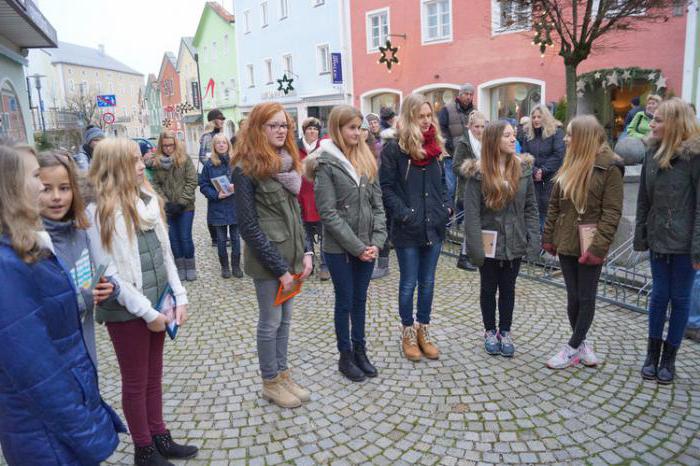
Moreover, you will have to pay the parents, as well as the institution where the minor was located. If the law is violated again, the fine will increase. Each region has the right to establish punishment for non-compliance with the rules to ensure the normal development of the child in various areas. In this case, a fine will be collected from:
- parents or guardians;
- persons responsible for activities with children.
Regional features
The curfew in winter or summer differs in length and penalties for persons responsible for minors. These differences are established by regional authorities.
In Moscow
On the territory of the capital, Art.
3.12 of the City Code on administrative offenses. The document establishes that night time is the period from 11 pm to 6 am. The restriction applies to children under 18 years of age who, without legal representatives, mother or father, are in a park, on a pond, roof, attic, basement or internet cafe. The curfew also applies to educational institutions, highways, construction sites, and railways. Read also: How to write a complaint to the prosecutor's office?
If a child is found at night in one of these places, parents are brought to administrative responsibility - a warning or a fine of 100 to 500 rubles.
If minors are detained in a restaurant, club or bar that sells alcoholic beverages, liability arises for the employees and the establishment itself. Officials are subject to a fine of 2500-5000 rubles. For legal entities, the fine is 10-30 thousand rubles. To prevent financial liability, the establishment may require documents from visitors.
Article 3.12 of the Code of Administrative Offenses of Moscow “Failure to take measures to prevent minors from being in public and other places unaccompanied by parents (persons replacing them) or persons carrying out activities with the participation of minors”
In St. Petersburg
In St. Petersburg in 2020, the standards established by city law No. 48-14 are in effect. According to them, persons under 16 years of age cannot be on the street at night, in parks, on public transport, in Internet clubs, or in places where alcoholic beverages are sold.
Law of St. Petersburg No. 48-14 also regulates:
- curfew time period. From September 1 to May 31 - from 22 to 6 o'clock, from June 1 to August 31 - until 23 o'clock;
- for teenagers aged 16 to 18 years - without parents you cannot be present in public places from 23 to 6 o'clock all year round;
- penalties for violators over 16 years old in the amount of 1000-3000 rubles;
- fine applied to parents - from 1 to 3 thousand rubles, from 3 to 5 thousand rubles. repeatedly;
- fines for individual entrepreneurs who allowed minors to the place to which the restriction applies - from 3,000 to 5,000 rubles, 5-10 thousand rubles. repeatedly;
- sanctions for legal entities for allowing their presence - from 10 to 15 thousand rubles, 15-20 thousand rubles. again.
Law of St. Petersburg dated February 19, 2014 No. 48-14 “On measures to prevent harm to the health, physical, intellectual, mental, spiritual and moral development of minors in St. Petersburg and amendments to the Law of St. Petersburg “On Administrative Offenses in St. Petersburg"
Rules of operation of the law
Compliance with the law is monitored by police patrols. Staff must escort the teenager home. Even if he did not know at what age one can walk at night, a fine is issued. If the child does not give his address, telephone number or information about his parents, then he is taken to the police station.

The duty officer determines the child’s place of residence. According to the law, a teenager can stay at the police station for 3 hours. If it is not possible to find a place of residence, the child is transferred to social services.
Law enforcement agencies say that since the introduction of the law, the number of crimes committed by teenagers has decreased. Now not all parents can let their child go for a night walk. This allows you to protect children from many rash actions. It is important for parents to control the location of their children. Moreover, following the rule will help save the family budget.
Which places are prohibited from visiting?
A curfew does not only mean limiting the time spent on the street. Children are prohibited from:
- in retail outlets, entertainment centers and in the areas adjacent to them;
- in station buildings, in open and closed stadiums;
- in public parks and squares;
- on the territory of cultural and educational institutions;
- in the locations of catering outlets;
- in bookmakers and stores selling intimate goods;
- in abandoned buildings with basements or roof exits;
- at city and public transport stops.
Read also: Law on Animal World
A special ban applies to places selling alcohol - teenagers are not allowed to be there at any time of the day or year.
Important! Without parental accompaniment at night, children can only stay at home or with relatives.
What is a day and how are they divided into parts?
The smallest of them is a week. It consists of seven days. The calendar starts from Monday and ends on Sunday. But it can be any sequence of seven consecutive days.
We recommend reading: How to understand whether a social pension is more profitable or a labor pension for a disabled person with 3 years of experience and 5 years of experience in St. Petersburg answers
If you look into them, you will find several interpretations of this word. And the first answer to the question of what a day is is the following definition: a unit of time that is equal to the approximate value of the period of revolution of the planet Earth around its axis. Why approximate? Because it is not smooth, but has minutes and even seconds. To be precise, 23 hours 56 minutes 4 seconds. It is impossible to divide them into an even number of parts. And 24 hours is just a little short.
How long is daytime considered?
Code and other federal laws. Women with children under three years of age, disabled people, workers with disabled children, as well as workers caring for sick members of their families in accordance with a medical certificate issued in the manner established by federal laws and other regulatory legal acts of the Russian Federation , mothers and fathers raising children under the age of five without a spouse, as well as guardians of children of the specified age, may be involved in night work only with their written consent and provided that such work is not prohibited to them for health reasons in accordance with the medical report. At the same time, these employees must be informed in writing of their right to refuse to work at night. (edited)
N 90-FZ) For workers engaged in work with harmful and (or) dangerous working conditions, where reduced working hours are established, the maximum permissible duration of daily work (shift) cannot exceed: for a 36-hour work week - 8 hours; with a 30-hour work week or less - 6 hours. A collective agreement may provide for an increase in the duration of daily work (shift) compared to the duration of daily work (shift) established by part two of this article for employees engaged in work with harmful and (or) dangerous working conditions, subject to the maximum weekly working hours time (part one of Article 92 of this Code) and hygienic standards for working conditions established by federal laws and other regulatory legal acts of the Russian Federation.
We recommend reading: Until what date are pensions issued at the post office in the Voronezh region?


